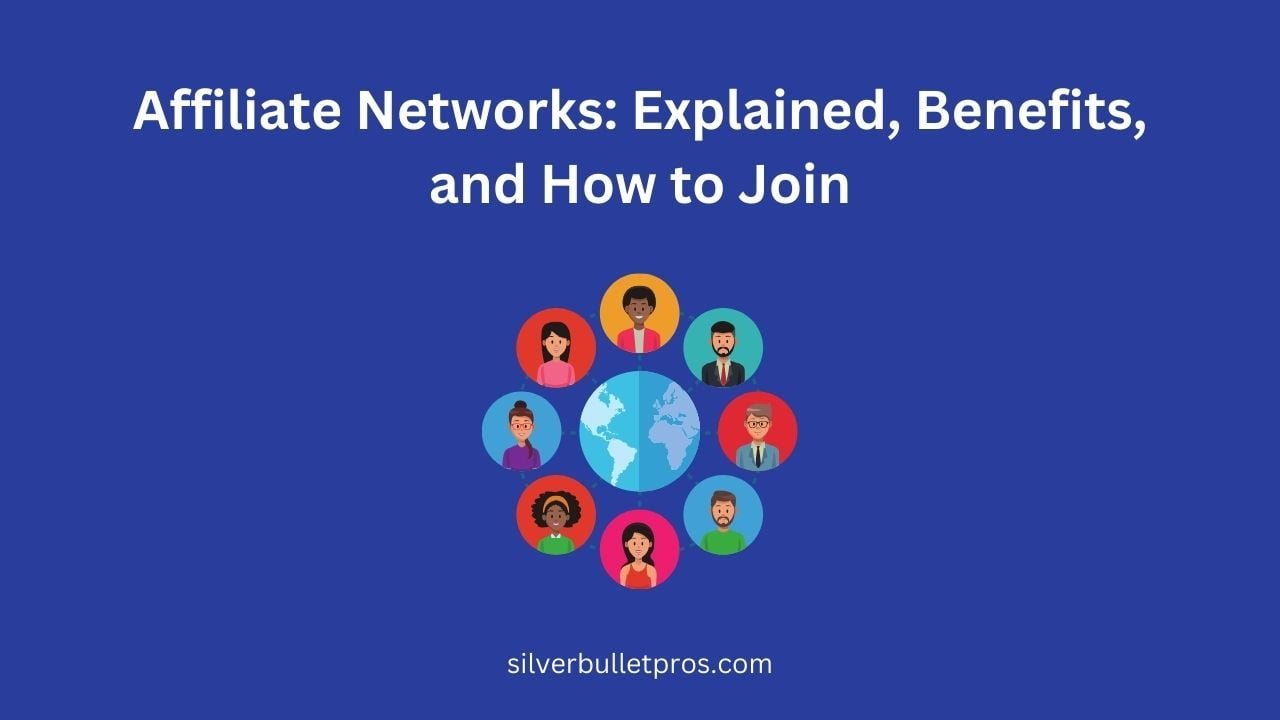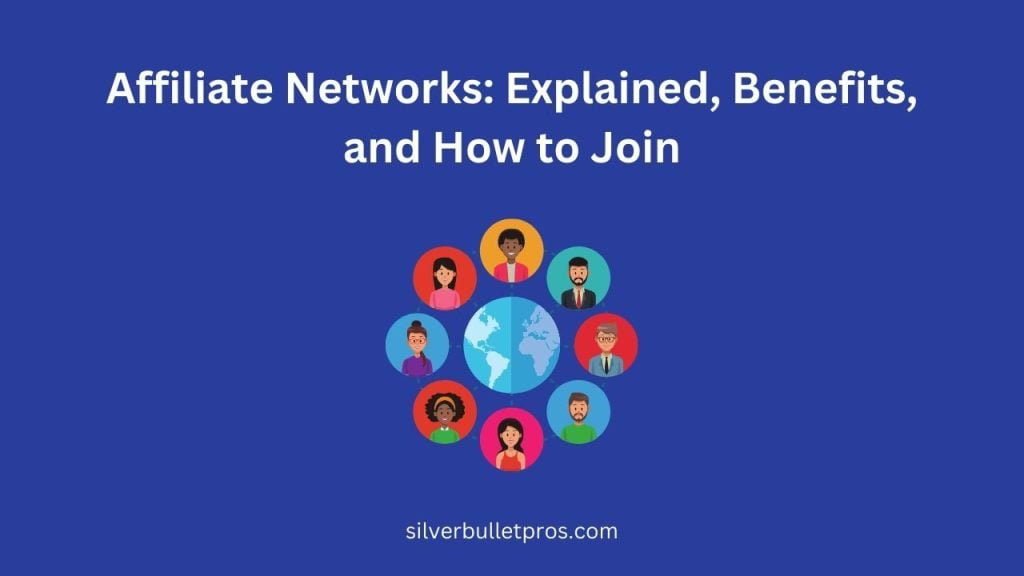

An affiliate network is a platform or intermediary that connects merchants/advertisers with affiliates. It serves as a marketplace for companies to list their affiliate programs and for publishers to find and join these programs.
The purpose of an affiliate network is to facilitate the process of affiliate marketing by providing tracking technology, reporting tools, and a centralized hub for managing multiple affiliate programs. In essence, affiliate networks are the backbone of the affiliate marketing industry, enabling seamless collaboration between merchants and affiliates.
Now that you understand the technical definition, allow me to provide an engaging introduction to this topic. Imagine a vast virtual marketplace where businesses from all over the world come together to showcase their products and services. This marketplace is a bustling hub of opportunity, where content creators, influencers, and savvy online entrepreneurs converge to explore lucrative partnerships. Welcome to the realm of affiliate networks – the catalysts that propel the affiliate marketing industry forward.
Affiliate networks have revolutionized the way businesses promote their offerings and how individuals leverage their online presence to generate substantial income streams. These platforms act as the connective tissue, seamlessly bridging the gap between merchants seeking exposure and affiliates eager to promote products and earn commissions.
In this comprehensive guide, I will delve into the intricacies of affiliate networks, unveiling their benefits, exploring the process of joining them, and showcasing some of the most prominent players in the industry. So, let's embark on this journey together and unlock the boundless potential of affiliate marketing through the power of affiliate networks.
What Are Affiliate Networks?
At their core, affiliate networks are platforms that facilitate partnerships between merchants and affiliates. They provide a centralized hub where businesses can list their affiliate programs, and publishers can browse through these programs and join the ones that align with their interests and audience.
For merchants, affiliate networks offer a streamlined way to manage their affiliate relationships, track sales, and distribute commissions. These platforms handle the intricate details, such as tracking cookies, commission payouts, and reporting, allowing merchants to focus on their core business operations.
On the other hand, affiliates benefit from the vast array of product offerings and services available through affiliate networks. By joining these platforms, affiliates gain access to a diverse range of merchants, making it easier for them to find relevant programs that resonate with their audience and content strategy.
Affiliate networks act as the intermediary, facilitating communication, tracking sales, and ensuring seamless payouts between merchants and affiliates. They provide robust tracking technologies, detailed reporting tools, and secure payment processing systems, ensuring transparency and accountability for all parties involved.
What Are the Benefits of Joining an Affiliate Network?
Joining an affiliate network offers numerous advantages for both merchants and affiliates. Here are some of the key benefits:
- Access to a Vast Pool of Potential Partners: Affiliate networks connect merchants with thousands of affiliates, expanding their reach and enabling them to tap into diverse audiences. Conversely, affiliates gain access to a wide range of products and services, increasing their earning potential.
- Streamlined Tracking and Reporting: Affiliate networks provide robust tracking and reporting tools, ensuring accurate commission calculations and transparent performance monitoring. This eliminates the need for merchants and affiliates to manage these processes individually.
- Fraud Prevention and Security Measures: Reputable affiliate networks implement stringent fraud prevention measures and secure payment systems, protecting both merchants and affiliates from potential risks and ensuring the integrity of the partnerships.
- Centralized Program Management: Affiliate networks offer a centralized platform for managing multiple affiliate programs, making it easier for both merchants and affiliates to monitor their performance, update creative assets, and communicate with partners.
- Increased Credibility and Trust: By being part of an established affiliate network, merchants and affiliates gain credibility and trust within the industry, as these platforms typically have rigorous vetting processes and quality standards.
- Exclusive Offers and Promotions: Many affiliate networks provide exclusive offers, promotional campaigns, and special incentives to their members, creating additional opportunities for increased earnings and engagement.
- Access to Industry Expertise and Resources: Affiliate networks often offer educational resources, industry insights, and expert advice to help both merchants and affiliates optimize their strategies and stay ahead of the curve.
How to Join an Affiliate Network
Joining an affiliate network typically involves a straightforward process, but the specific steps may vary depending on the platform. Here is a general outline of how to join an affiliate network:
- Choose the Right Network: Research and identify the affiliate networks that align with your niche, target audience, and business objectives. Consider factors such as the network's reputation, the quality of merchants, and the available tools and resources.
- Create an Account: Visit the affiliate network's website and create an account. This typically involves providing basic information about yourself or your business, as well as agreeing to the network's terms and conditions.
- Complete Your Profile: Once your account is created, complete your profile by providing additional details, such as your website URL, social media handles, and any relevant experience or expertise you have in the affiliate marketing space.
- Apply for Specific Programs: Browse through the available merchant programs on the network and apply to join the ones that interest you. Some networks may require additional information or approval steps before granting access to certain programs.
- Implement Tracking and Links: After being accepted into the desired programs, follow the instructions provided by the affiliate network to implement tracking codes, links, and other necessary elements on your website or promotional channels.
- Promote and Earn Commissions: Start promoting the products or services of the merchants you've joined, and the affiliate network will track your referrals and sales. Commission payouts will be handled by the network based on the terms and conditions of each program.
It's important to note that some affiliate networks may have additional requirements or verification processes, such as website reviews or minimum traffic thresholds. Be sure to carefully review the network's guidelines and comply with their policies to ensure a smooth onboarding process.
What Are Some Examples of Affiliate Networks?
The affiliate marketing industry is home to numerous affiliate networks, each catering to diverse niches and industries. Here are some examples of popular and reputable affiliate networks:
- Amazon Associates: Amazon's affiliate program is one of the largest and most well-known in the industry, offering a vast selection of products across various categories.
- ShareASale: This network boasts a wide range of merchants, from well-established brands to niche-specific products, catering to a diverse array of interests.
- Rakuten Advertising (formerly Rakuten LinkShare): A global affiliate network with a strong presence in the retail, travel, and financial sectors.
- CJ Affiliate (formerly Commission Junction): This network is known for its extensive selection of merchants, particularly in the fashion, beauty, and lifestyle niches.
- ClickBank: A popular affiliate network specializing in digital products, such as e-books, software, and online courses.
- Awin (formerly Affiliate Window): A leading affiliate network that works with numerous global brands and offers advanced tracking and reporting capabilities.
- Impact Radius: This network is renowned for its emphasis on transparency, fraud protection, and its partnership with high-profile advertisers across various industries.
- Partnerize: A full-service affiliate network that provides robust tools, customizable solutions, and a focus on strategic partnerships.
These are just a few examples, and there are many other reputable affiliate networks to explore, depending on your specific niche or requirements.
What Are the Types of Affiliate Networks?
Affiliate networks can be classified into several types based on their structure, focus, and business model:
- General Affiliate Networks: These networks encompass a wide range of merchants and product categories, allowing affiliates to promote various offerings from different industries. Examples include ShareASale, Rakuten Advertising, and CJ Affiliate.
- Niche-Specific Affiliate Networks: These networks specialize in specific niches or industries, such as fashion, travel, or finance. They often provide more targeted and relevant opportunities for affiliates within those niches. Examples include Awin (fashion and retail) and Pepperjam (e-commerce and retail).
- In-House Affiliate Networks: Some large companies or brands operate their own in-house affiliate networks, managing their affiliate programs directly without the involvement of third-party platforms. Examples include the Apple Affiliate Program and the Walmart Affiliate Program.
- Cost-per-Action (CPA) Networks: These networks focus on performance-based marketing, where affiliates are compensated for specific actions, such as sales, leads, or signups, rather than just clicks or impressions. Examples include MaxBounty and Azoogle.
- Influencer Networks: These networks connect brands with influential content creators, bloggers, and social media personalities for influencer marketing campaigns.
What is an affiliate network and how does it work?
An affiliate network connects businesses with affiliates who promote their products or services. Affiliates earn commissions for generating sales or leads through their marketing efforts.
What are the primary benefits of joining an affiliate network?
The primary benefits include access to a wide range of products to promote, tracking and reporting tools, reliable payment systems, and support from the network.
How can I find the best affiliate network for my niche?
To find the best affiliate network, research networks that specialize in your niche, read reviews, check the reputation of the network, and evaluate the commission rates and terms they offer.
What are the typical requirements for joining an affiliate network?
Typical requirements include having a website or a significant online presence, providing contact information, agreeing to the network's terms and conditions, and sometimes meeting traffic or content quality standards.
How do I get started with an affiliate network as a beginner?
As a beginner, start by researching and selecting a reputable affiliate network, sign up and create an account, choose products to promote, and integrate affiliate links into your content. Focus on creating quality content and driving traffic to your site.